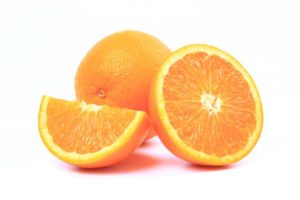 Published in the journal Cancer Prevention Research, the study describes how the pigment, called beta-cryptoxanthin (BCX), reduces the number of receptors required for nicotine to fuel lung tumor growth.
Published in the journal Cancer Prevention Research, the study describes how the pigment, called beta-cryptoxanthin (BCX), reduces the number of receptors required for nicotine to fuel lung tumor growth.
Nicotine is an addictive chemical present in tobacco and some e-cigarette liquids.
Study co-author Xiang-Dong Wang, of the Jean Mayer United States Department of Agriculture Human Nutrition Research Center on Aging at Tufts University in Boston, MA, and colleagues say that their results indicate that eating fruits and vegetables high in BCX might reduce the risk of lung cancer caused by smoking.
This year, around 222,500 new cases of lung cancer will be diagnosed in the United States, and there will be more than 155,000 deaths from the disease.
Find Info About AS Symptoms And What You Can Do Today. www.Ankylosing-Spondylitis-Info.com
Smoking remains a leading cause of lung cancer. According to the American Lung Association, men who smoke are 23 times more likely to develop lung cancer than men who do not smoke, while women who smoke are at a 13 times greater risk of developing the disease than their nonsmoking counterparts.
Secondhand smoke exposure is also a risk factor for lung cancer, causing approximately 7,330 deaths among nonsmokers in the U.S. each year.
Nicotine and lung tumor growth
There are more than 7,000 compounds in tobacco smoke, many of which are carcinogens, or cancer-causing substances, that damage the cells lining the lungs upon inhalation.
While nicotine is not considered a direct cause of lung cancer, studies have shown that the addictive compound can promote the growth of lung tumors.
Wang and colleagues explain that when inhaled, nicotine binds to receptors on the surface of the lungs, known as nicotinic acetylcholine receptor α7 (α7-nAChR). This prompts a signaling cascade that causes cell proliferation and the formation of new blood vessels, which are processes involved in cancer growth.
Furthermore, nicotine increases the production of α7-nAChR, and the more of these receptors there are for nicotine to bind to, the stronger the signaling cascade that encourages the growth of lung cancer cells among smokers.
However, Wang and colleagues believe that BCX could be effective for reducing the amount of α7-nAChR receptors on the lungs, which could decrease the growth of lung cancer cells.
BCX reduced lung tumor growth by up to 63 percent in mice
BCX is a type of carotenoid that is responsible for the yellow, orange, and red colors of numerous fruits and vegetables, including oranges, tangerines, butternut squash, and sweet red peppers.
In previous research, Wang and team observed a link between the consumption of BCX-rich foods and a lower risk of lung cancer in humans. For this latest research, the team set out to pinpoint the mechanisms underlying this association.
To reach their findings, the researchers gave two groups of mice a daily injection of a carcinogen derived from nicotine. One group of mice was also given a daily dose of BCX before and after the injection.
Compared with rodents that did not receive a daily dose of BCX, the team found that rodents that did receive the carotenoid experienced a 52-63 percent reduction in lung tumor growth.
A daily dose of 870 micrograms of BCX – the equivalent to the human consumption of around one sweet pepper or two tangerines – was found to be the most effective in reducing lung tumor growth, the team reports.
BCX ‘may have a beneficial effect on lung cancer risk’
Next, the researchers tested BCX on human lung cancer cells with and without α7-nAChR. They found that lung cancer cells with α7-nAChR were less likely to spread with BCX exposure, compared with lung cancer cells without the receptors.
While further research is required to gain a better understanding of how BCX might impact lung cancer development in humans, Wang and colleagues believe that individuals exposed to tobacco smoke might benefit from consuming foods rich in BCX.
MNT DT






